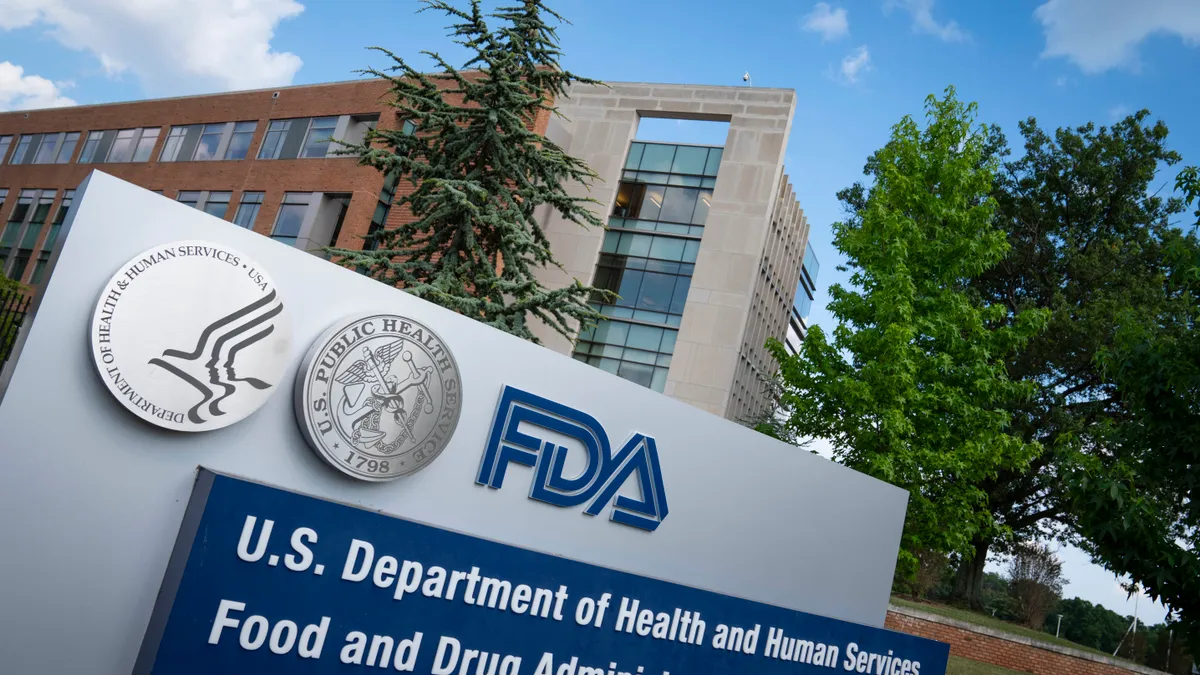Dive Brief:
- High-risk medical devices that undergo post-approval modifications are more likely to be recalled from the U.S. market, according to an analysis published in JAMA Network Open.
- The study linked the use of supplements to modify devices with premarket approval (PMA) to a 28% increased risk of any recall and a 32% increased risk of Class I recall.
- While the retrospective study cannot show supplements cause recalls, the authors of the paper see the findings as evidence that improved post-marketing surveillance systems may be needed to mitigate risks to patient safety.
Dive Insight:
Manufacturers of devices with PMA from the U.S. Food and Drug Administration can use five types of supplements to make changes to their original approvals. One supplement, panel track, requires clinical data and is rarely used. Earlier studies raised concerns that devices could diverge from their original, approved designs over the years, leading the authors of the JAMA paper to assess the link to recalls.
The researchers analyzed 373 devices that received PMAs between 2008 and 2019. Manufacturers filed 10,766 supplements in relation to the devices. The analysis showed that devices with more supplements were more likely to be recalled. Each increase of one supplement a year raised the risk of recall.
Almost all, 99%, of the supplements were filed without clinical data. The study found no association between the 1% of data-backed, panel track supplements and the risk of recall, leading the researchers to conclude “the clinical data may provide some protective effect.”
High-risk medical devices, or class III devices, such as defibrillators, pacemakers and implanted prosthetic devices, account for about 1% of the nearly 3,000 devices authorized annually by the FDA, and must comply with stricter premarket review standards than lower-risk devices, the authors said. Still, they noted that devices approved via PMA harbor ”3 times the risk of any recall and 7 times the risk of a class 1 (highest risk) recall when compared with those devices cleared through the less stringent 510(k) pathway.”
Modified devices may bear little resemblance to the device originally approved. The study cited the recalls of cardiac defibrillator leads from Medtronic and St. Jude Medical that after being approved as supplements were recalled due to high rates of failure.
The researchers acknowledge the limitations of their study, which, as a retrospective, large-database, observational cohort analysis, is unable to prove supplements cause recalls. Other factors such as the frequency that devices are used could affect both the number of supplements and risk of recall. Even so, the researchers think their approach to the data suggests supplements play a role in device recalls.
Based on the data, the authors of the paper still see the supplement process as “critical in expediting delivery of incremental device changes with potentially greater safety and effectiveness profiles” and do not view the process as “intrinsically flawed.” Rather, the researchers want to raise physician awareness and see improved preapproval testing and post-market surveillance as ways to mitigate safety risks.












